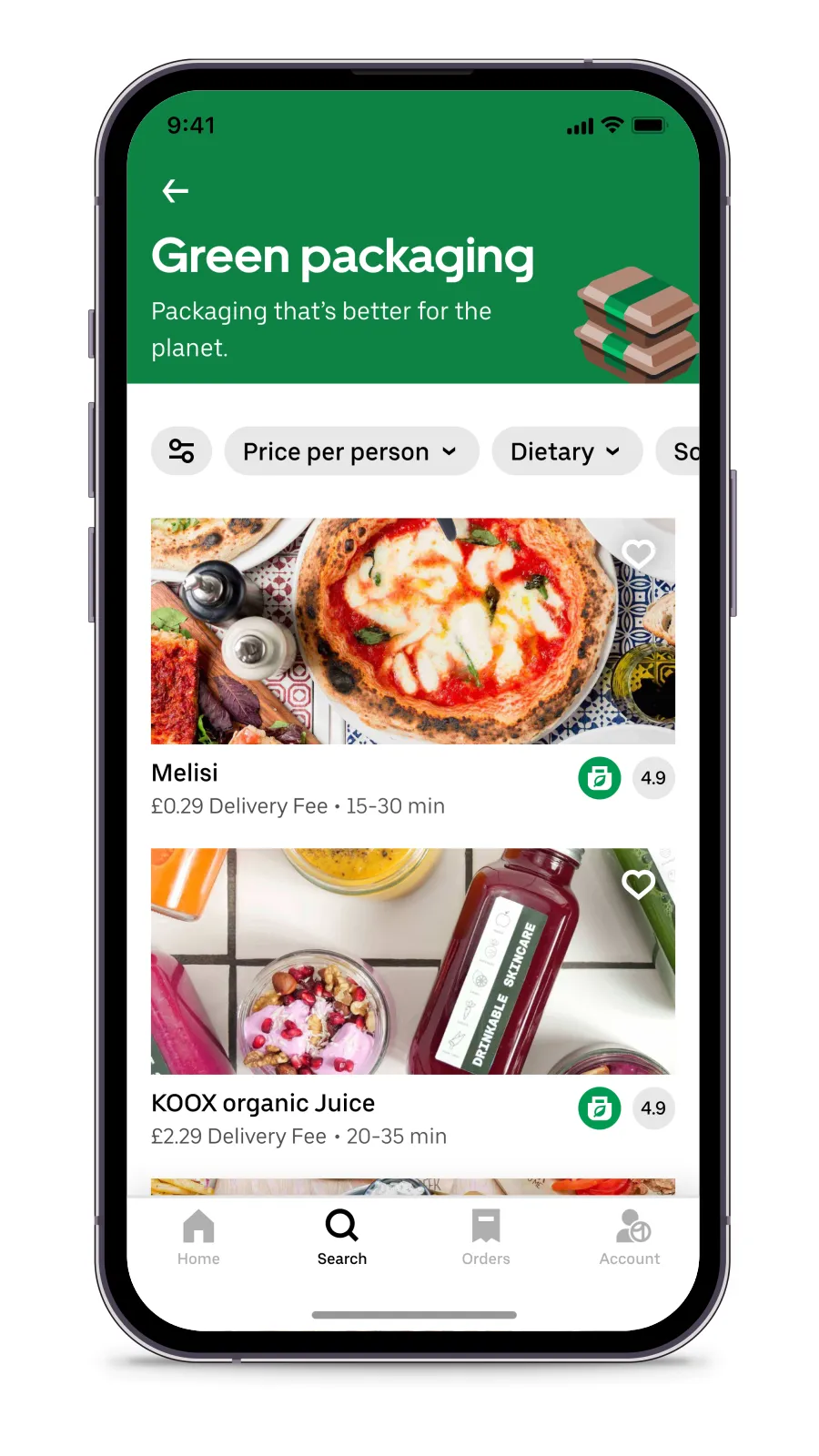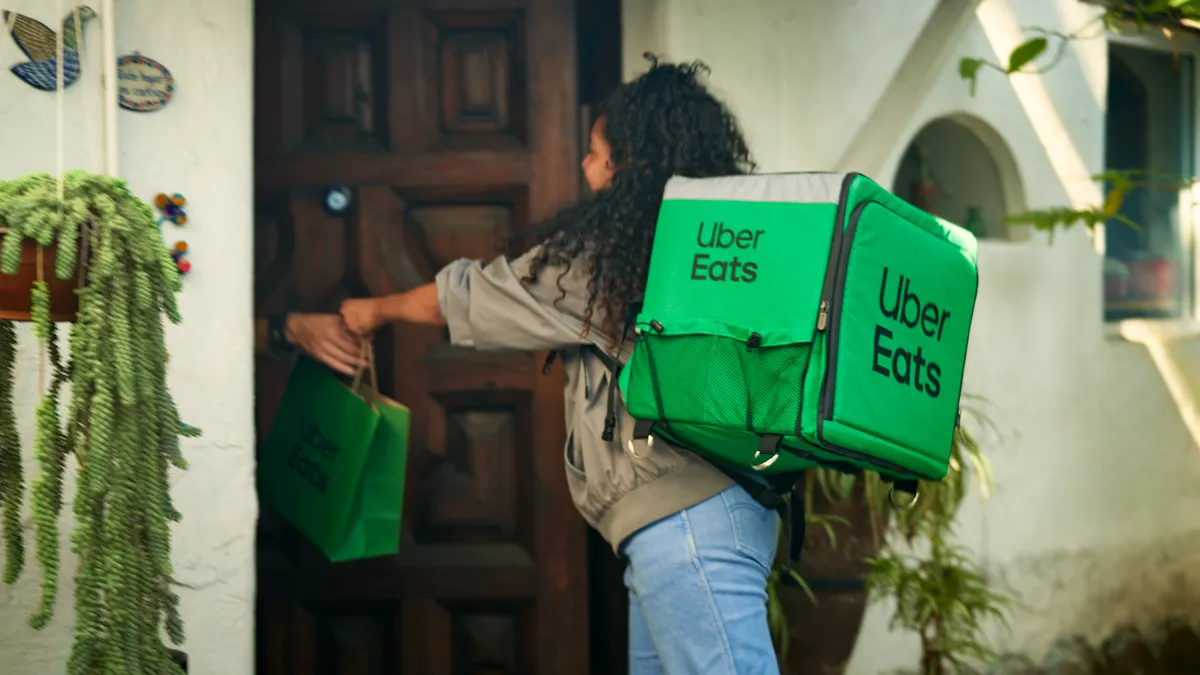Dive Brief:
- Uber Eats has launched a zero-waste and zero-emissions initiative to reduce plastic packaging and carbon emissions, the company said in a post Thursday.
- The company will be offering merchants access to discounted green packaging around the world and access to grants for small businesses to purchase this packaging.
- This move is an expansion of Uber’s 2020 pledge to become an emissions-free mobility platform by 2040 globally and includes a plan to end all unnecessary plastic waste from deliveries by 2023, Pierre-Dimitri Gore-Coty, SVP of delivery at Uber Eats, wrote in the post.
Dive Insight:
Consumers surveys revealed that 80% of Eaters in the U.S. and U.K. would be more likely order from an Uber Eats merchant that used sustainable packaging, the company said. But restaurants are concerned by the price tag of these solutions, with sustainable packaging costing 25% more than petroleum-based packaging, Uber Eats said. This disconnect created an opportunity for Uber Eats to partner with various sustainable packaging providers to offer a 35% discount on green packaging.
In the U.S., the company has partnered with Green Paper Products. In Europe, it partnered with Bunzl, Enviropack and Dinovia. Uber Eats said World Wildlife Fund and Closed Loop Partners helped provide guidance on which providers offer reusable, recyclable and compostable packaging.
Through Uber Eats’ Grants for Growth program with Visa, small businesses can apply for $10,000 grants to put toward purchasing sustainable packaging. These grants, which began during the pandemic to help restaurants stay open, are accepting applications through July 7. Its partner, Hello Alice, will help determine eligible and deserving restaurants in the U.S.
“To address single-use plastic waste and its effects on the environment, we’ll help restaurants transition to more sustainable packaging in every city where we do business by 2030 through a combination of discounts, incentives, and advocacy,” Gore-Coty said.
In 2020, the company added a feature allowing consumers to opt-in to single-use cutlery and launched reusable packaging pilots in France, Switzerland, Germany and parts of the U.K. and the U.S., Gore-Coty said. The company has since partnered with the World Wildlife Fund and Closed Loop Partners to create packaging guidelines and partnerships that support restaurants transitioning to eco-friendly packaging.

Consumers will also be able to select merchants who use green packaging in Amsterdam, London, Paris, New York, San Francisco and Taipei starting this week, Gore-Coty said.
In terms of its zero emissions pledge, the company has several initiatives to help couriers reduce their emissions. The company said it has invested in increasing batching delivery orders and providing greener routes to reduce emissions. This strategy includes mapping out the most efficient route and finding parking spots for couriers that would not only make it easier for drivers to park and pick up orders, but also reduce congestion, the company said. Batching would allow a driver to pick up multiple orders from one restaurant that could then be delivered to consumers living close by, increasing earnings for couriers and also reducing emissions, Uber Eats said.
Uber Eats has teamed up with RMI to analyze various challenges and opportunities that the company has when helping couriers switch to last-mile, zero-emission transportation. This partnership will help Uber Eats scale new and existing programs to help couriers wishing to switch to a green mode of transportation. In North America, the company extended its vehicle partnerships with the Hertz Tesla rental program and cashback for Pro Card users for charging.










